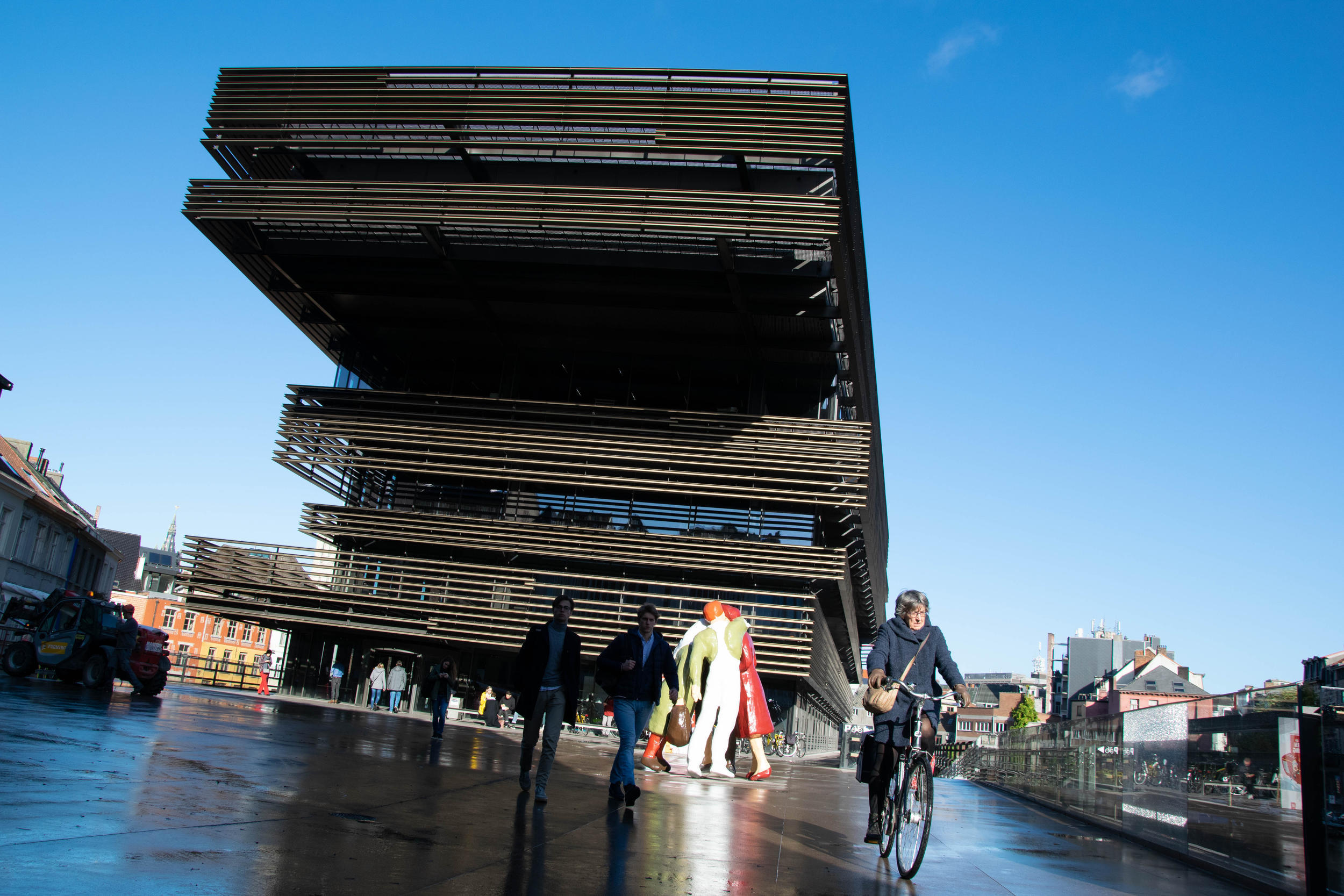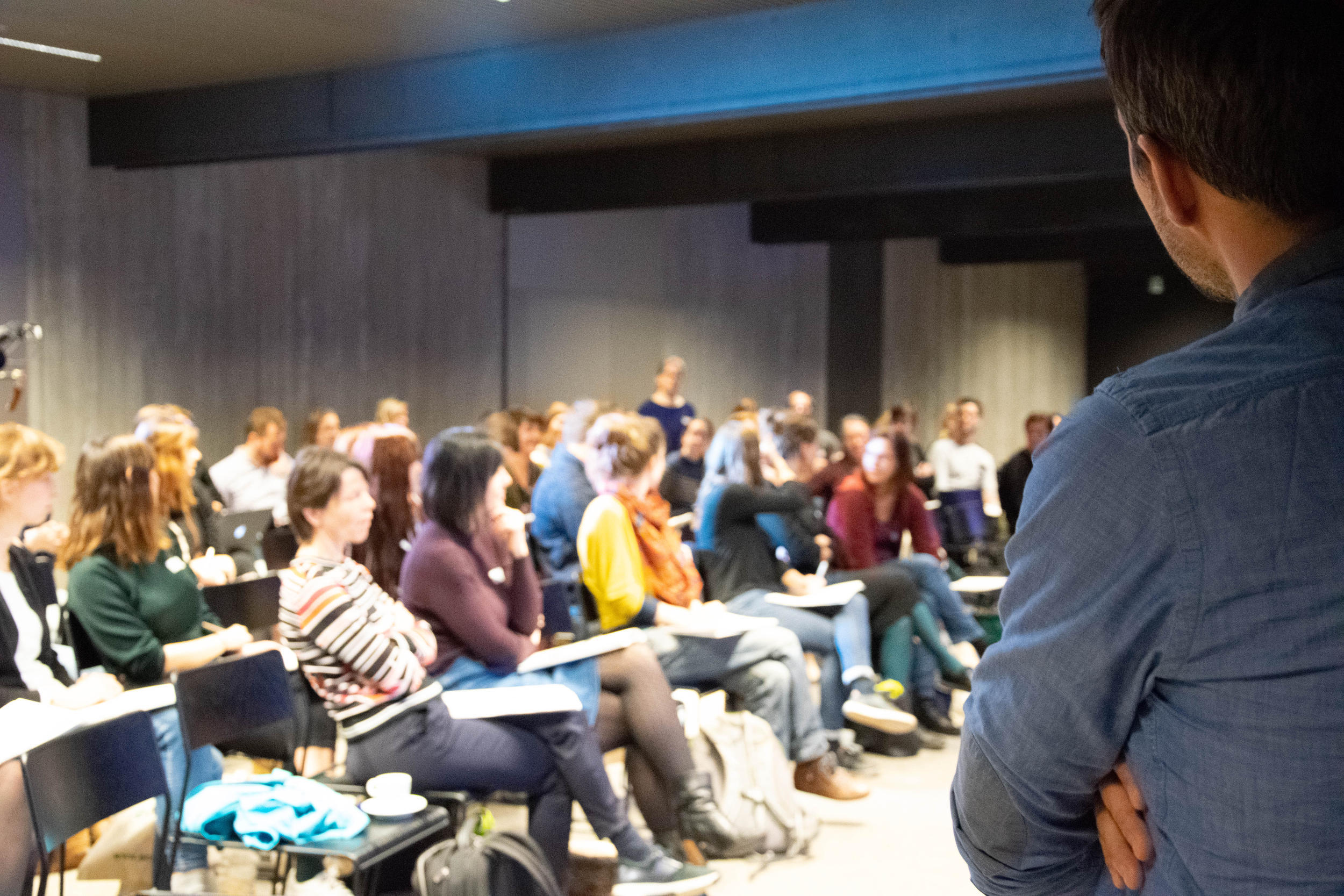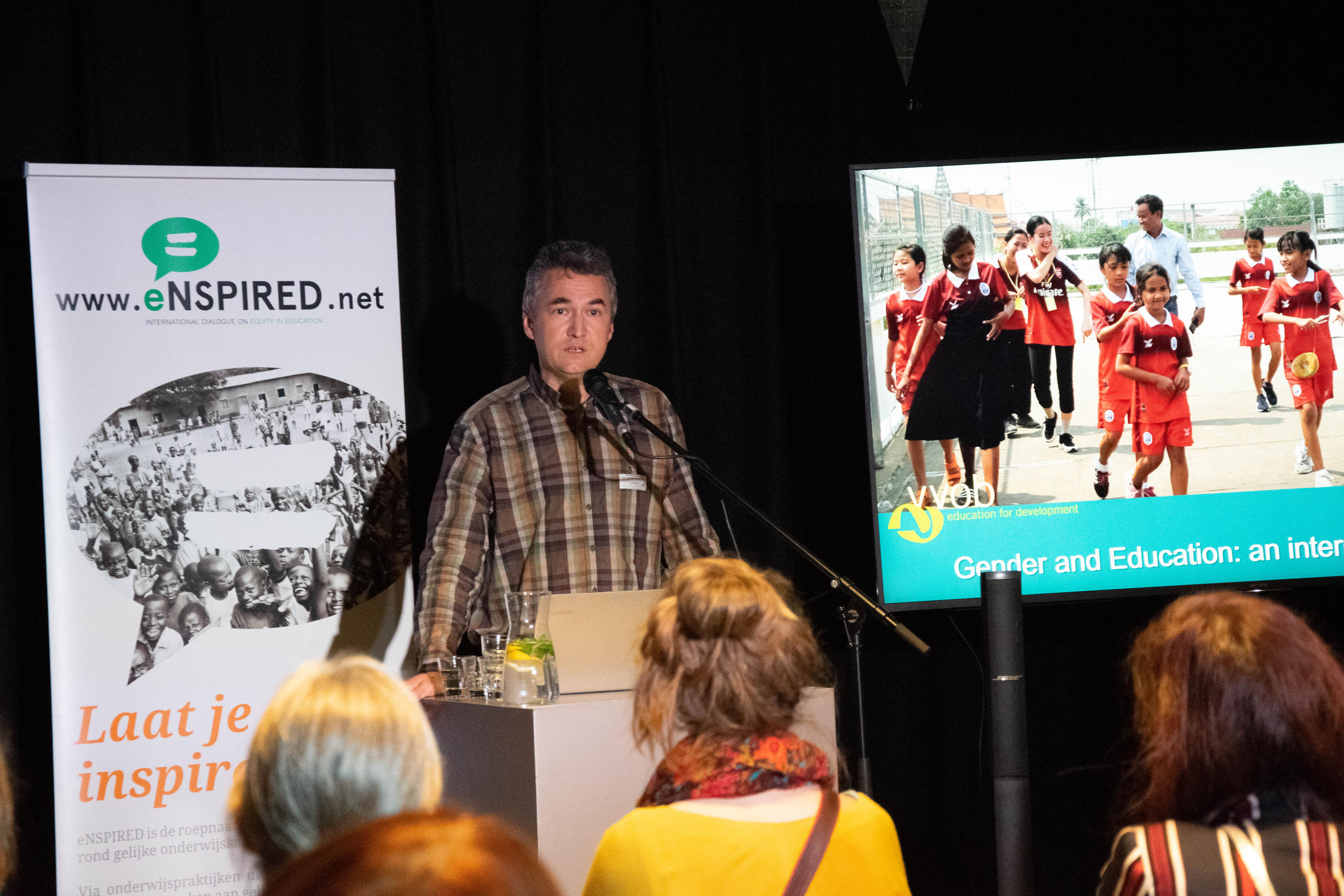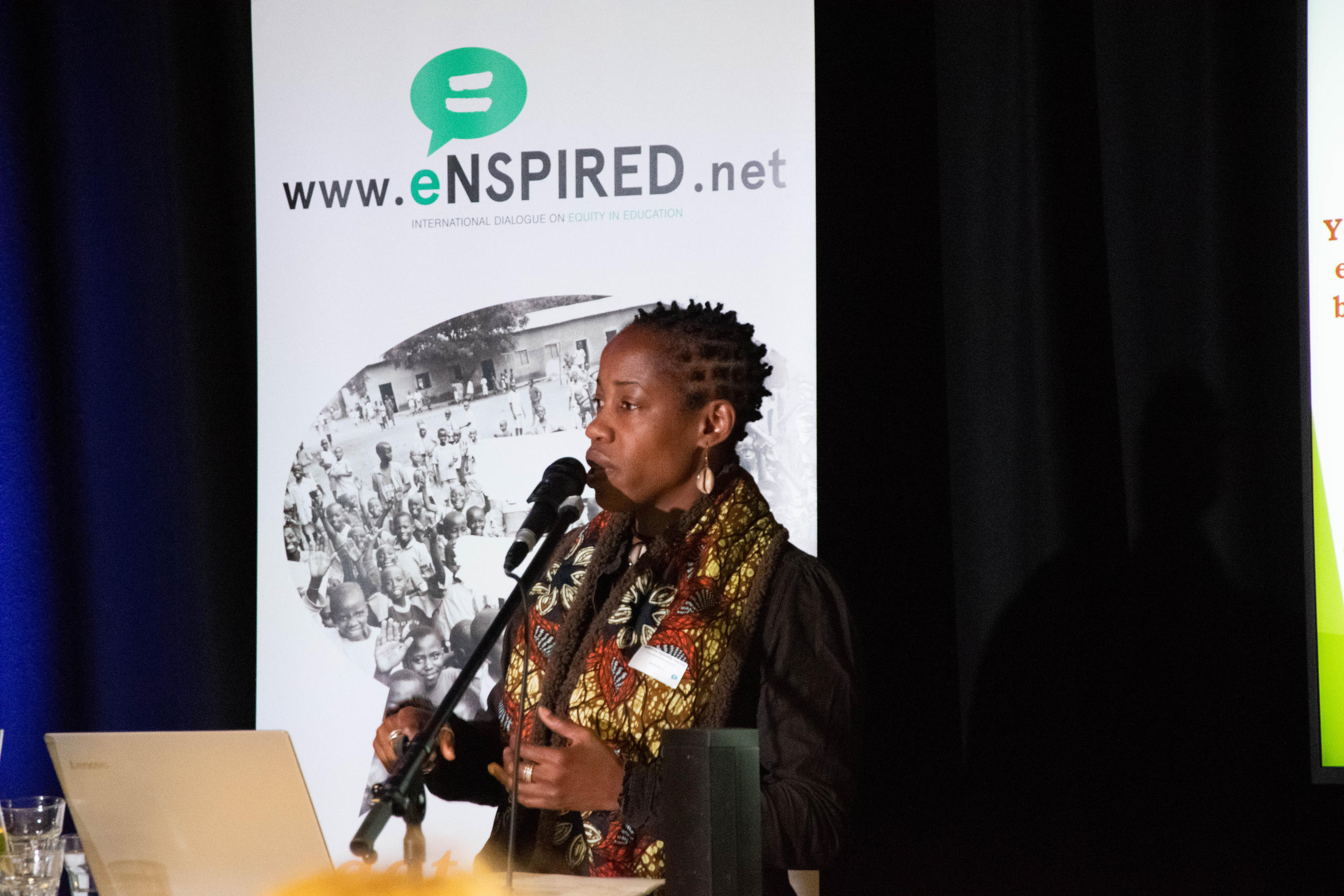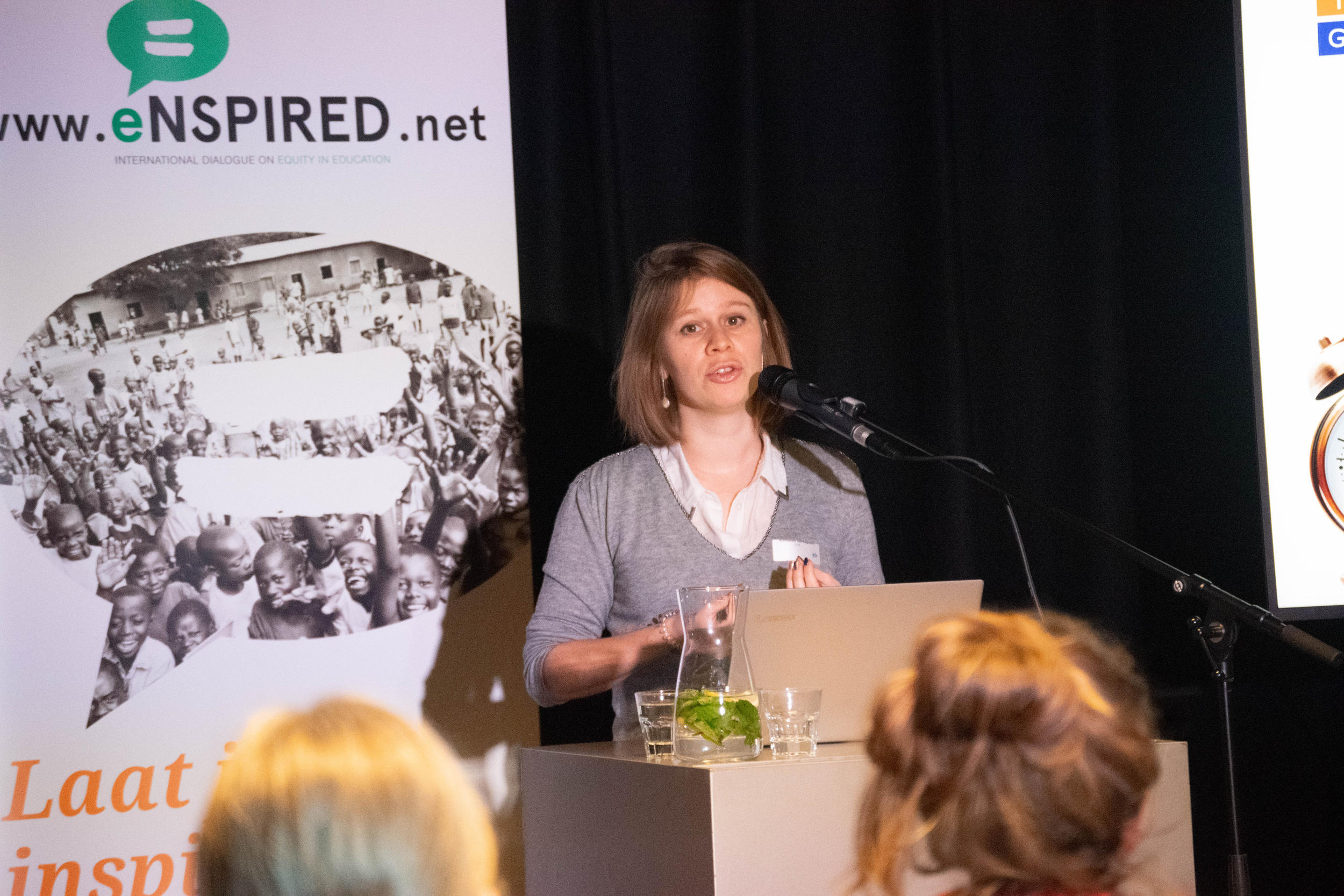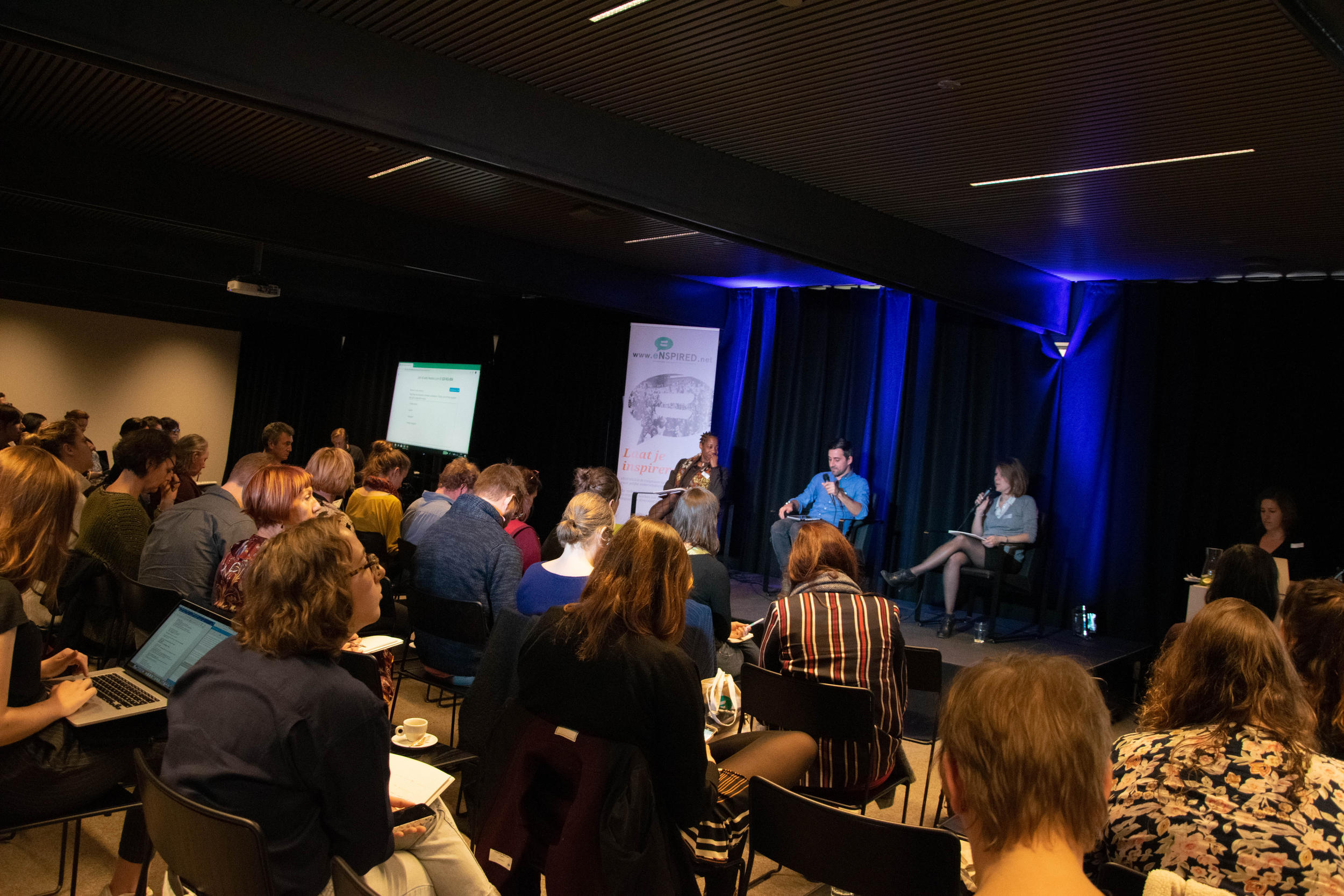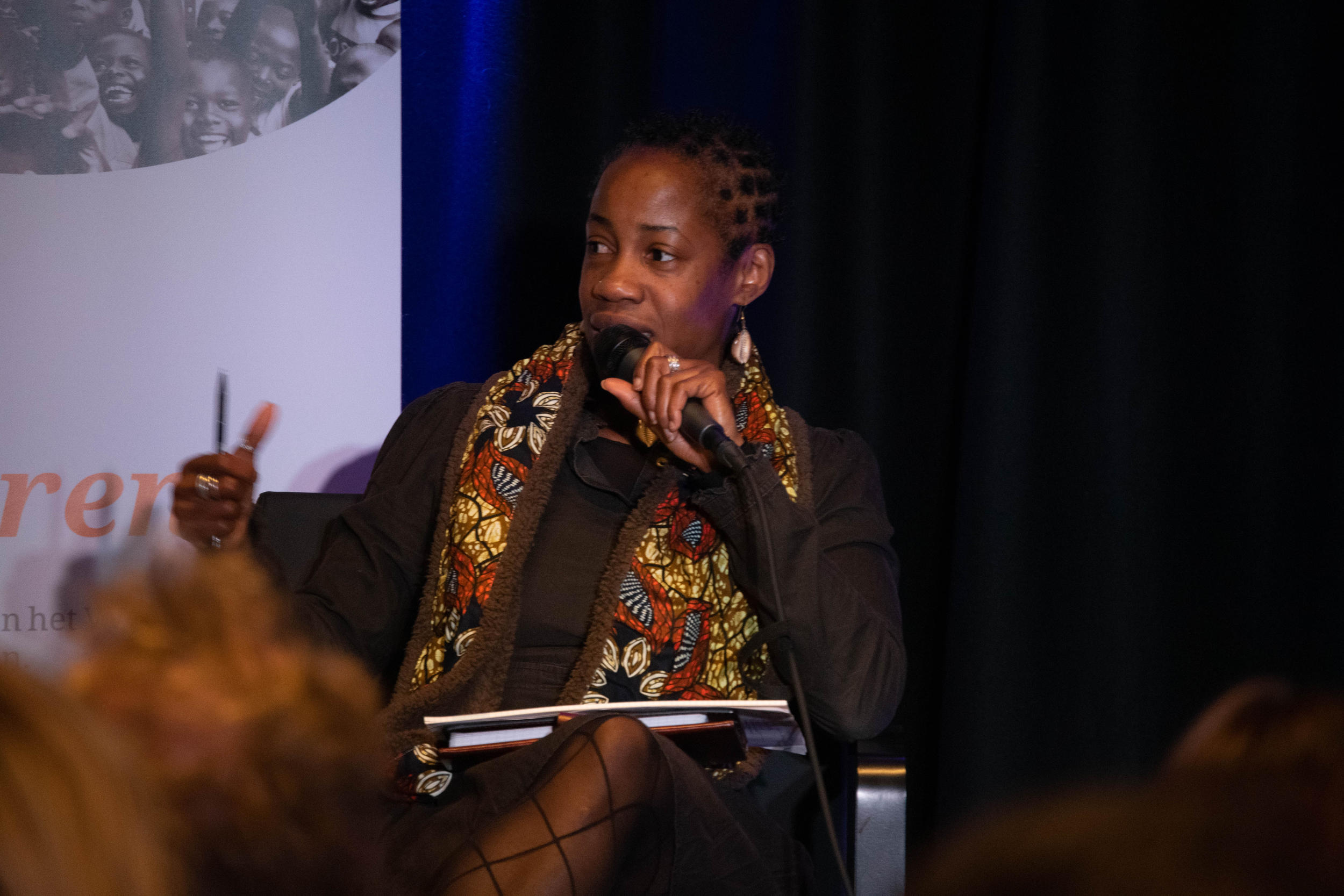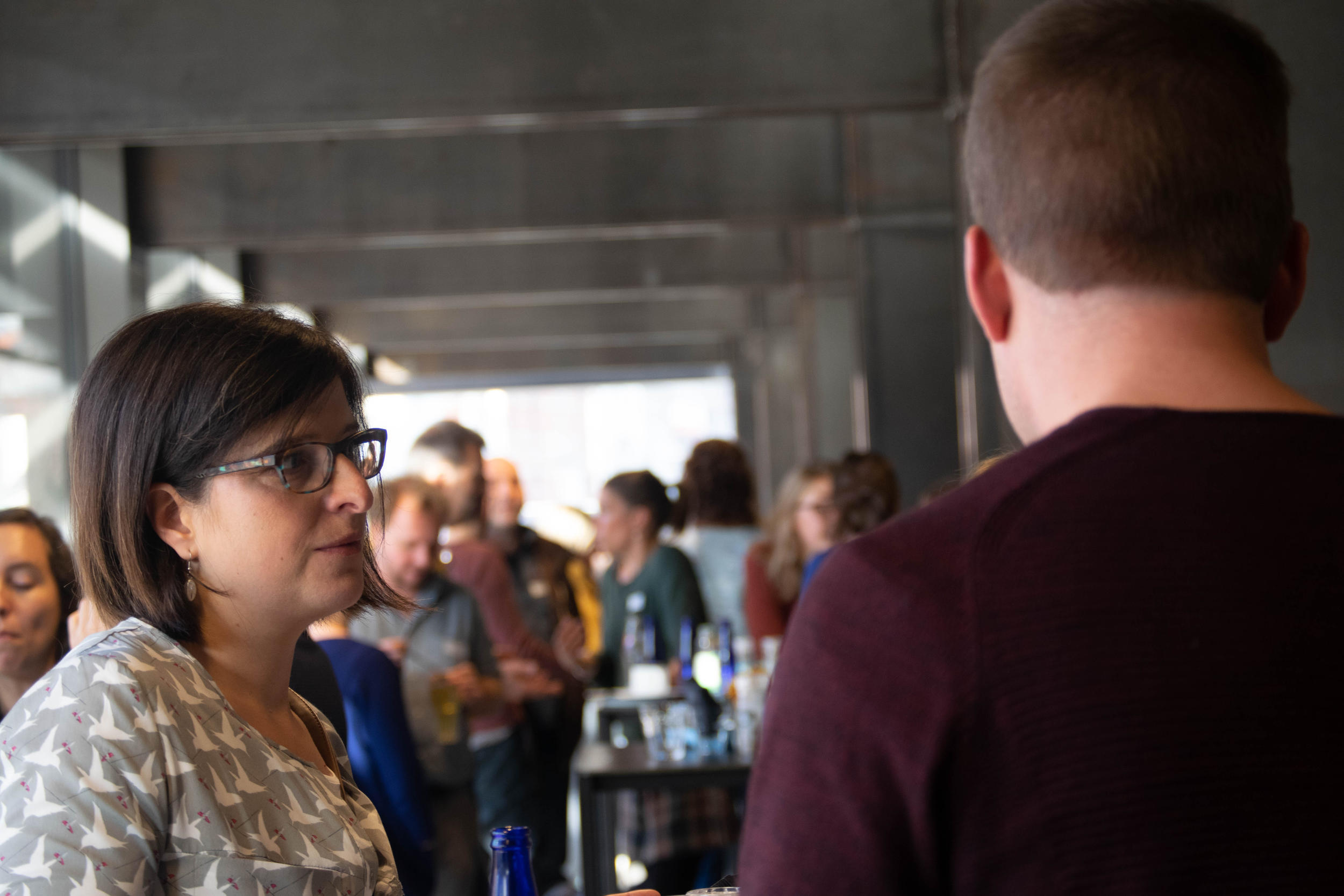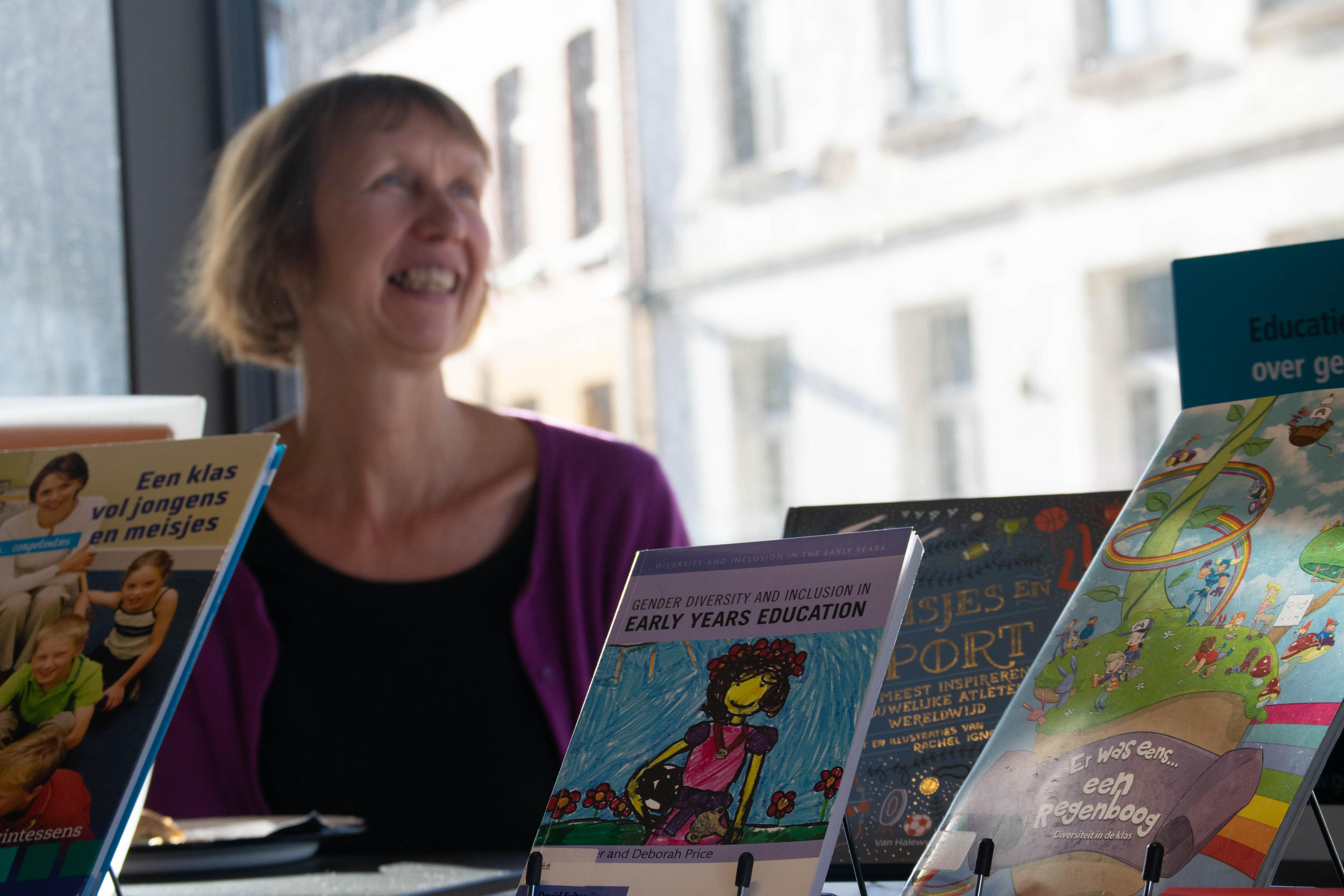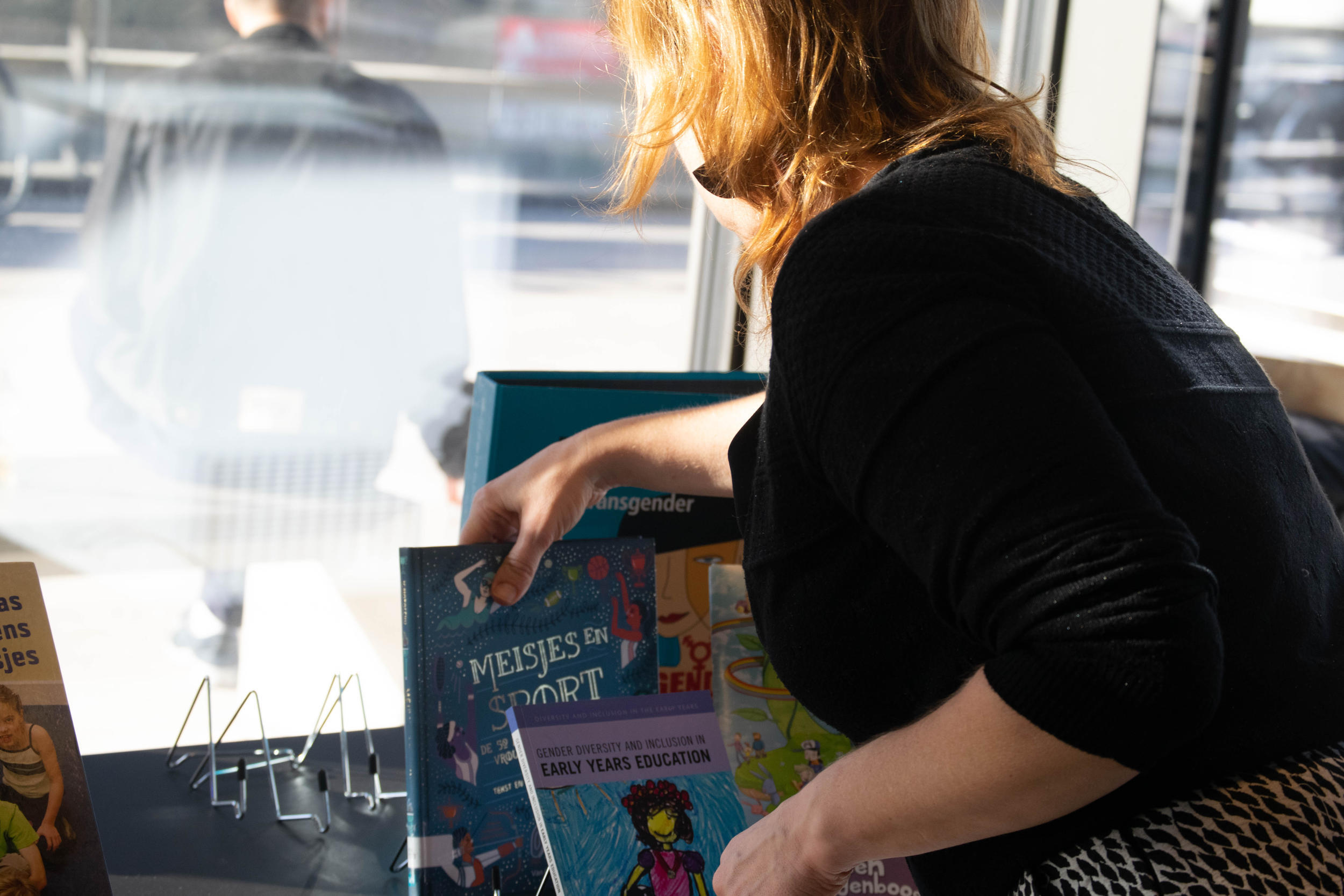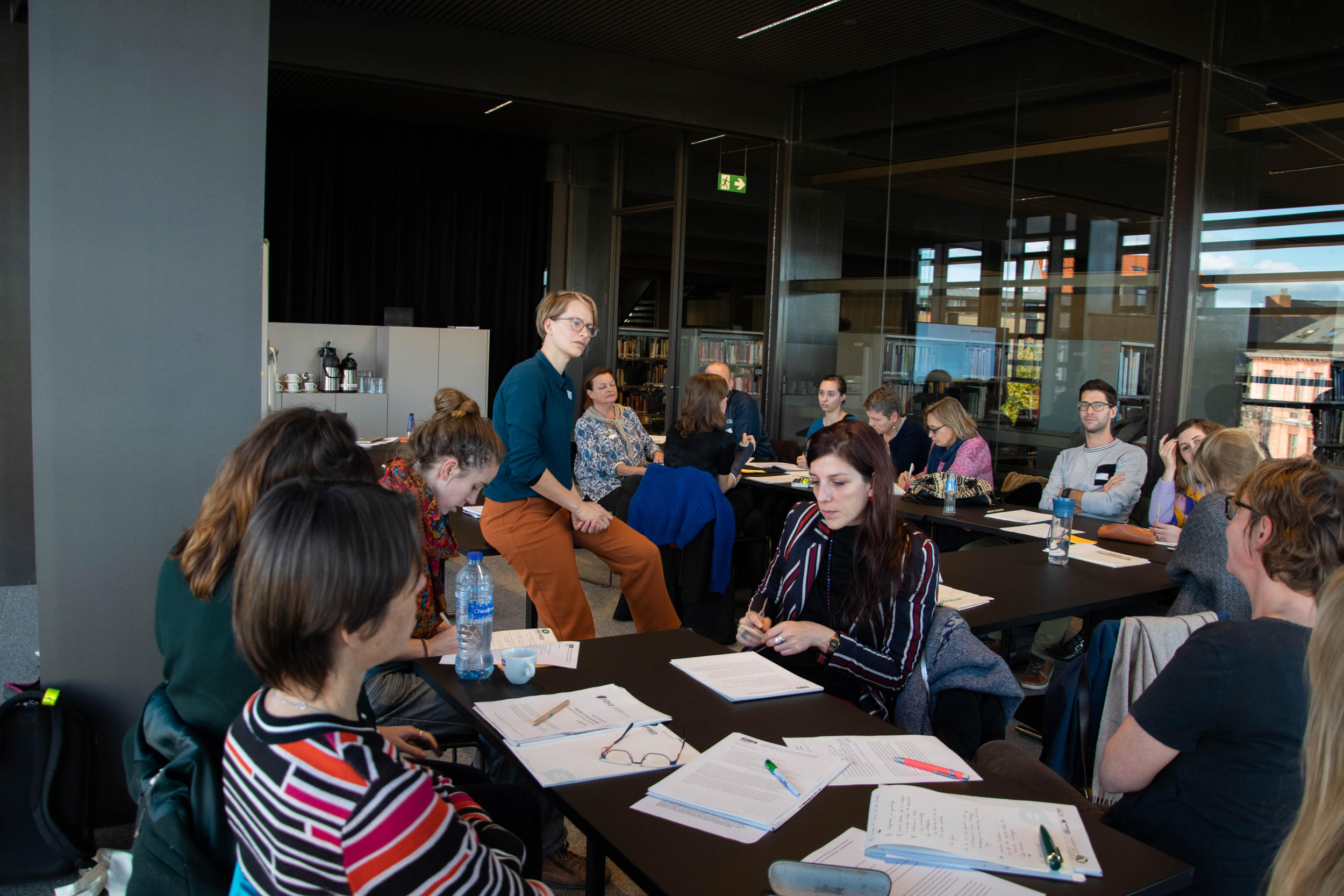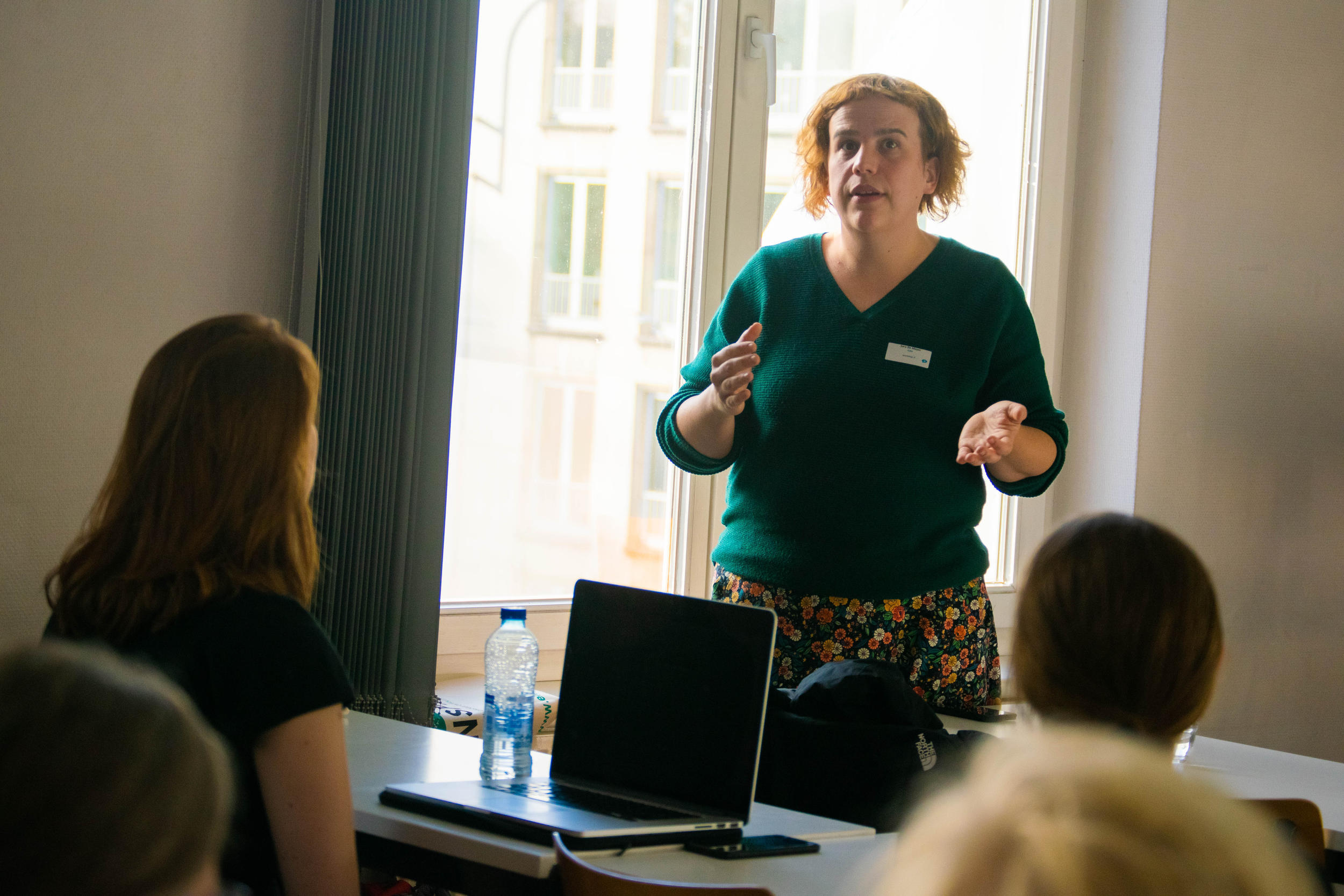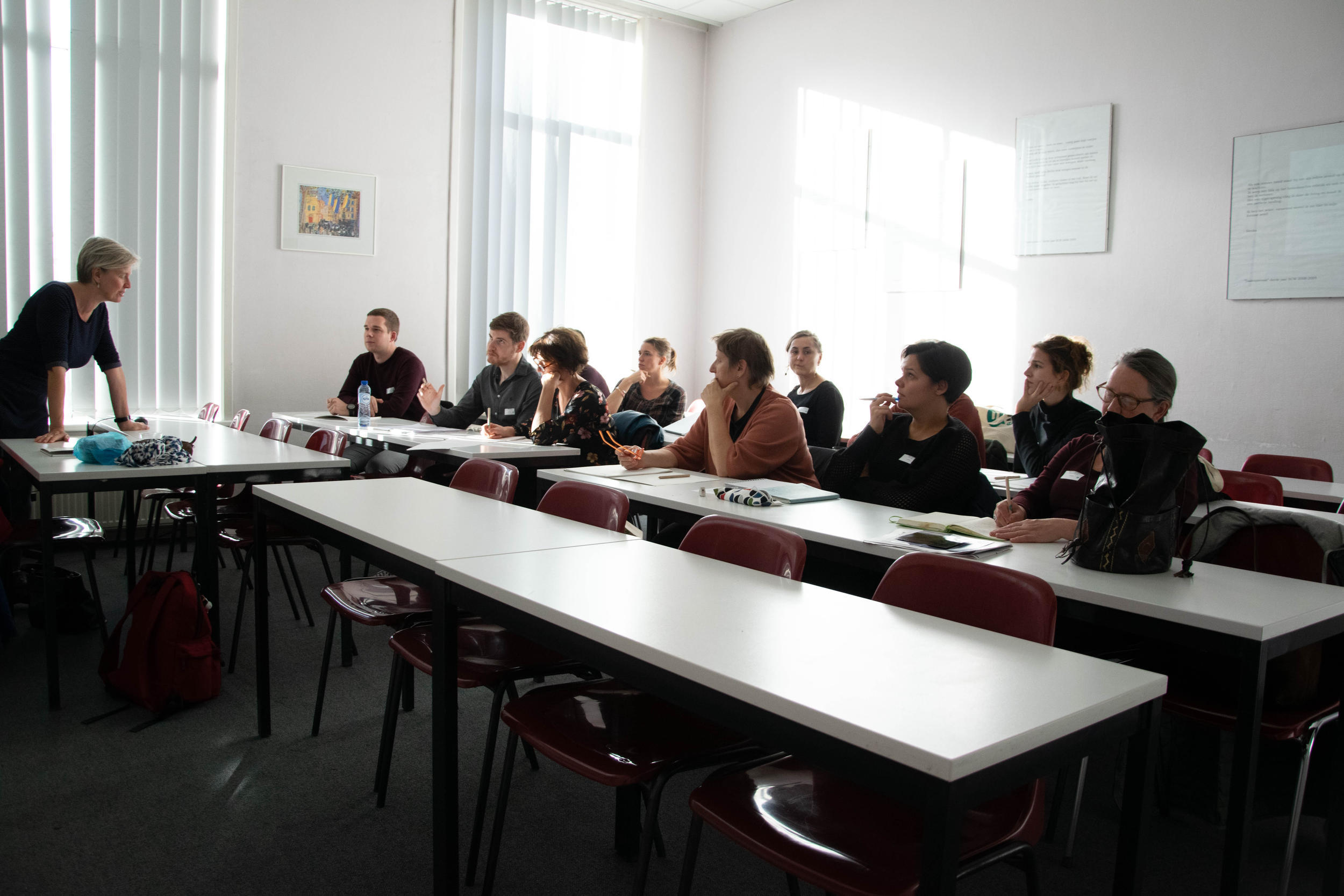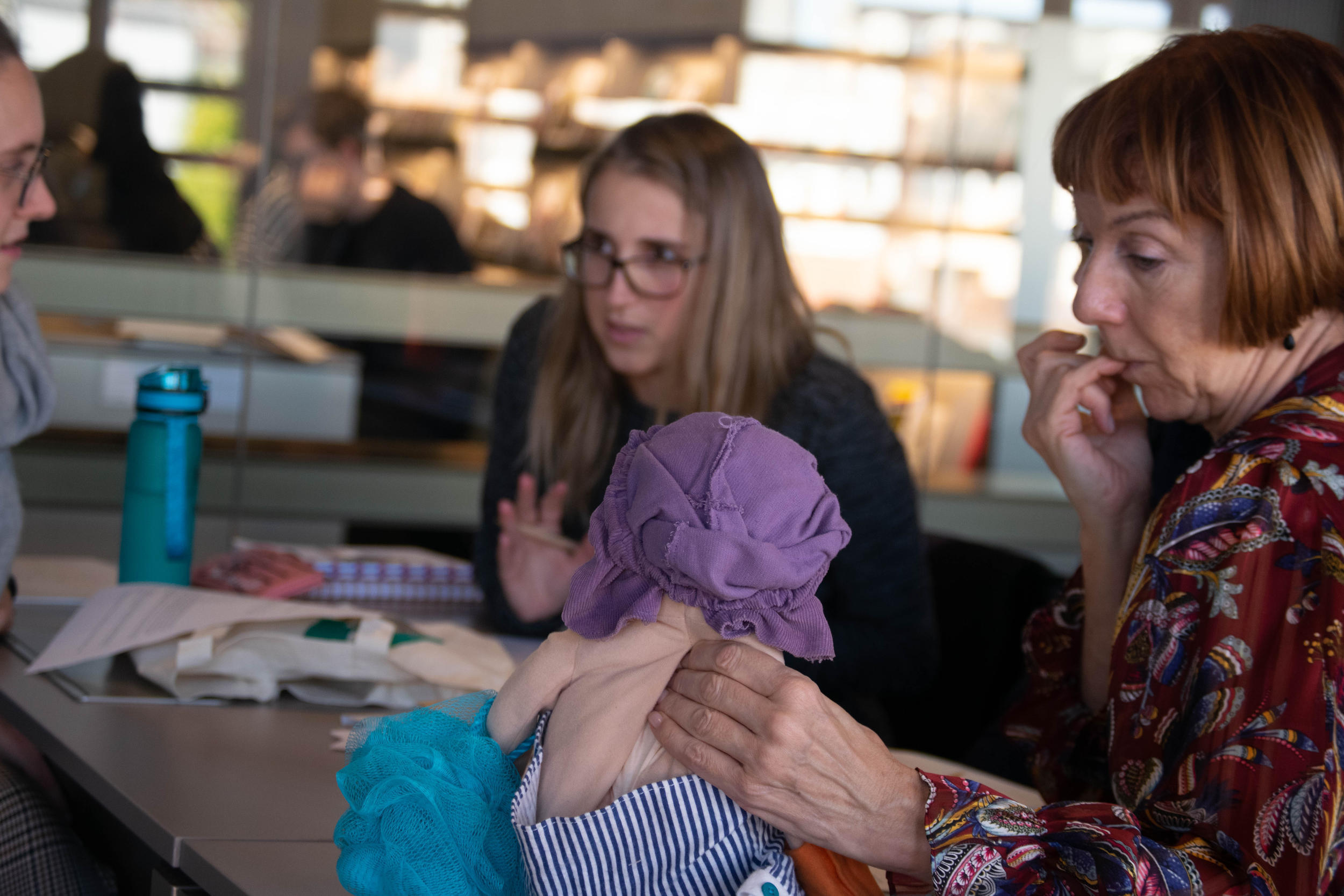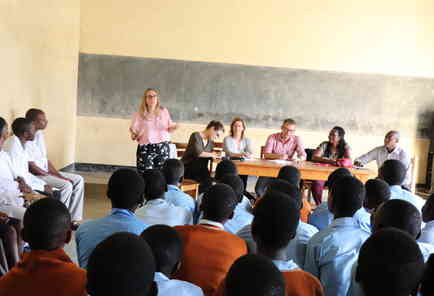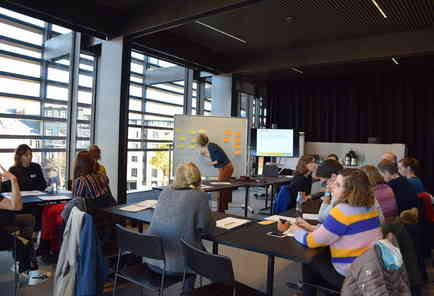Retrospect of eNSPIRED’s gender and education lecture
Every child has a right to (safe) access to quality education. Yet 65 million girls worldwide are denied this, and for 17 million of them the future does not look any brighter. In addition, around 150 million children are at risk of missing out on education, because they are working or fleeing from conflicts. Girls from the poorest families are particularly at risk of dropping out. This contrasts sharply with the Belgian education sector: girls and boys have equal opportunities in education, but boys are at a disadvantage because of the ever-growing learning gap.
During the international guest lecture on gender and education on 13 November 2018 in Ghent, gender specialists Madeleine Kennedy-Macfoy from Education International (EI) and Wendelien Vantieghem, at the time working at the Vrije Universiteit Brussel (VUB), looked for links between these gender challenges.
Madeleine and Wendelien: a short introduction
Madeleine Kennedy-Macfoy is Programme Coordinator of the Gender Equality Action Plan at Education International (EI). Representing 32 million members in 177 countries, the organisation aims to involve teachers more closely in education policy by mobilising them through teachers associations. EI is an exchange forum between policy makers, teacher trainers and teachers and teachers associations worldwide.
Wendelien Vantieghem works at the Vrije Universiteit Brussel (VUB) as a research coordinator of the Potential - Power to teach all – project, an inter-university collaboration. The main objective of this project is to develop the competences of (student) teachers to create inclusive learning environments. She is also a member of RHEA, Research Centre Gender, Diversity and Intersectionality of the VUB. Wendelien focuses primarily on social inequalities such as socio-economic background, ethnicity and gender in the Belgian education sector.
Gender stereotypes and gender-based violence in and around schools
Not many people understand international gender issues the way Madeleine does. School-related gender-based violence (SRGBV) in particular is an important area of study for her: "Gender stereotypes do not exist in a vacuum but are rooted in societies that confirm these prejudices. This manifests itself at school level, for example as SRGBV, a type of violence that occurs all over the world and takes different forms."
Only when everyone in and around the school is involved, can we implement sustainable changes in school policy.
The feeling of insecurity associated with SRGBV is one of the main reasons girls do not go to school or drop out early. "If we want to ban gender stereotypes and SRGBV in schools, we need to involve the wider community as well," Madeleine advises. She concludes that "this is a long-term process, because the taboo surrounding SRGBV is big, and because religious stakeholders may have a significant influence. Only when everyone in and around the school is involved can we implement sustainable changes in school policy. That will make it easier to recognise SRGBV and to implement appropriate procedures to combat it.”
From access to true participation
“In Belgium, girls are doing very well at school”, Wendelien adds. “Boys, on the other hand, are more often referred to special needs education and are more likely to repeat a year or leave school without a diploma. The number of girls in higher education is also significantly higher than the number of boys. Because we have equal participation in education in Belgium, the focus of research has shifted from access to education to true participation in education, which also looks at learning outcomes, attitudes and behaviour in school.”
How you behave and what your interests and hobbies are, are unconsciously linked to male/female characteristics which have an impact on our lives.
Because of their perceived ‘negative attitude’ in the classroom, boys in Belgium appear to be less motivated at school. “To explain this, we need to put gender in a broader perspective”, Wendelien clarifies. “How you behave and what your interests and hobbies are, are unconsciously linked to male/female characteristics that have an impact on our lives. For boys it is considered cool if they act tough, rebel, are sporty and challenge teachers in class. Girls, on the other hand, make more intimate friendships where good results and a positive study attitude are socially less punished.”
Lesbian, gay, bisexual, transgender and related communities (LGBT+)
Gender is not part of the curriculum in Belgium, and many teachers struggle with it. In this respect, there is a big difference between teachers' stance towards LGBT+ and how they approach the subject in the classroom. Wendelien explains that "in general, teachers have a positive attitude towards LGBT+ and pay extra attention to LGBT+ minority students and LGBT+ students from lower social backgrounds. Yet they do not feel competent or comfortable dealing with the topic in the classroom. 85 percent of the young people indicate they have been misinformed about LGBT+. As with SRGBV, the taboo around sex plays a major role in this."
SRGBV and the school’s role
According to Madeleine, schools can take steps to help girls feel more secure in the face of SRGBV, regardless of social thinking: "It is important to create a safe space where they can ask questions and learn about their rights. Teachers also need to know and respect their professional code of ethics and approach everyday situations in a gender-responsive way. As role models, they must be aware of their behaviour, because any accusation against a teacher is harmful to the image of the profession."
A closer look at school culture
The attitude of teachers and the school towards gender norms has far-reaching consequences for the personal development of young people. According to Wendelien, it is therefore important to take a critical look at school policy: "Flexible gender standards are important for the well-being of students. By loosening these standards, students can discover who they are without wondering what others think of them'', says Wendelien. "Question your policy and check how gender-neutral your rules are. What are the dress codes for girls? Is there a gender-neutral toilet? Is there a poster of the LGBT+ Helpline? Do not split your guidelines into groups based on sex, because then you are focusing on differences between sexes. As a school leader, you must get the entire team’s support on this so there is a shared vision of a child's school career."
Gender in class
Are you a teacher and do you want to work more on gender in class? According to Wendelien, small adjustments to class content are often a first step in the right direction: "Everyone has prejudices, including you. Do some self-reflection and review the lessons you are already teaching today. For example, include the extermination of LGBTI+ and Roma people in your lessons about the Holocaust, discuss female researchers and writers in class. Look for educational material on the subject, consult the methodological guide of the UN, and be inspired by The Great Gender Show by RoSa (only available in Dutch).”
A long-term process
This process is not always easy. "Changing the school culture is a long-term process, because it is linked to social thinking," says Madeleine. "You have to continue to train and motivate each new generation of teachers. Teachers also need support to do their job. By listening to the people in the field, we can close the gap between policies, organisations and teachers."
Below you can find the pictures, download all the presentations and watch the entire guest lecture.
